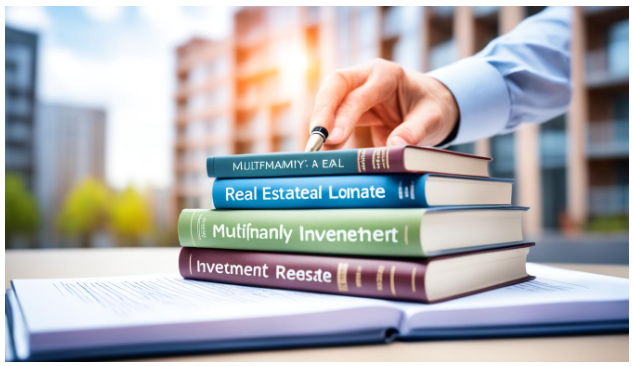The Role of Property Management in Multifamily Real Estate Success
Property management is one of the most critical factors in the success of any multifamily real estate investment. Whether you own a small apartment building or a large complex, effective property management can make the difference between a profitable investment and a financial drain. In this blog, we’ll explore the essential role of property management in multifamily real estate and how it can impact your bottom line.
1. Why Property Management Matters in Multifamily Real Estate
Managing a multifamily property involves far more than just collecting rent. It requires a comprehensive approach to tenant relations, maintenance, financial management, and legal compliance. Here are a few reasons why property management is so important:
- Tenant Satisfaction and Retention: Keeping your tenants happy is key to maintaining low vacancy rates and reducing turnover costs. A good property management team ensures that tenant concerns are addressed promptly and professionally, leading to higher tenant satisfaction and longer leases.
- Maintenance and Repairs: Regular maintenance is essential to keeping your property in good condition and preventing costly repairs. Property managers oversee routine inspections, handle repair requests, and ensure that the property is compliant with safety standards.
- Financial Management: Property managers are responsible for managing the property’s finances, including rent collection, paying bills, and preparing financial reports. This helps ensure that the property operates efficiently and remains profitable.
- Legal Compliance: Multifamily properties are subject to a wide range of legal requirements, including fair housing laws, eviction procedures, and safety regulations. A knowledgeable property manager ensures that the property complies with all relevant laws, reducing the risk of legal issues.
2. The Key Responsibilities of a Property Manager
To understand the full scope of property management, it’s helpful to break down the key responsibilities of a property manager. These tasks are critical to the smooth operation of a multifamily property.
- Rent Collection: Ensuring that rent is collected on time is one of the most important responsibilities of a property manager. This includes following up on late payments, enforcing late fees, and managing the eviction process if necessary.
- Marketing and Leasing: Property managers are responsible for marketing available units, showing the property to prospective tenants, and handling lease signings. A good property manager knows how to attract high-quality tenants and fill vacancies quickly.
- Tenant Relations: Building strong relationships with tenants is essential to maintaining a positive living environment. Property managers handle tenant complaints, resolve disputes, and enforce lease terms to ensure that all tenants are treated fairly and consistently.
- Maintenance and Repairs: From routine maintenance tasks like lawn care and snow removal to more significant repairs, property managers oversee all aspects of property upkeep. They also handle emergency repairs and ensure that the property is safe and habitable.
- Financial Reporting: Property managers track income and expenses, prepare financial statements, and provide regular reports to the property owner. This transparency helps owners stay informed about the property’s financial performance.
- Legal Compliance: Property managers must stay up to date on local, state, and federal laws that affect multifamily properties. This includes fair housing regulations, safety codes, and landlord-tenant laws.
3. In-House vs. Third-Party Property Management
When it comes to managing a multifamily property, owners have two main options: managing the property in-house or hiring a third-party property management company. Both approaches have their pros and cons.
In-House Property Management
- Pros:
- Greater Control: Managing the property in-house gives owners more control over daily operations and tenant relations. This can be beneficial for hands-on investors who want to be involved in every aspect of their property.
- Cost Savings: By managing the property themselves, owners can avoid paying property management fees, which can range from 8-12% of gross rental income.
- Cons:
- Time-Consuming: Managing a multifamily property requires a significant time commitment. Owners who manage their own properties may find themselves overwhelmed by the day-to-day responsibilities of property management.
- Lack of Expertise: Property management requires a wide range of skills, from financial management to legal compliance. Owners who lack experience in these areas may struggle to manage the property effectively.
Third-Party Property Management
- Pros:
- Professional Expertise: Third-party property management companies bring a wealth of experience and knowledge to the table. They know how to handle tenant issues, maintenance, and legal matters efficiently.
- Time Savings: Hiring a property management company frees up the owner’s time, allowing them to focus on other investments or personal pursuits.
- Cons:
- Cost: Property management companies charge a fee for their services, typically a percentage of the property’s gross rental income. While this cost can be offset by increased efficiency, it still represents an additional expense.
- Less Control: Owners who hire a property management company relinquish some control over the day-to-day operations of their property. This can be challenging for owners who prefer a hands-on approach.
4. The Impact of Good Property Management on ROI
Effective property management can significantly impact your return on investment (ROI). Here’s how:
- Reduced Vacancy Rates: A good property manager knows how to attract and retain tenants, reducing vacancy rates and ensuring a steady stream of rental income.
- Increased Tenant Retention: Happy tenants are more likely to renew their leases, reducing turnover costs and vacancy periods. Property managers who build strong relationships with tenants can improve tenant retention rates.
- Lower Maintenance Costs: Regular maintenance helps prevent costly repairs and extends the life of the property’s systems and infrastructure. A proactive property manager will ensure that maintenance tasks are completed on schedule, saving you money in the long run.
- Efficient Rent Collection: Timely rent collection is essential to maintaining cash flow. A good property manager will enforce lease terms, collect rent on time, and address late payments quickly.
- Legal Protection: Property managers who are knowledgeable about landlord-tenant laws can help protect owners from legal disputes and potential lawsuits. This reduces the risk of costly legal fees and settlements.
5. Tips for Choosing the Right Property Management Company
If you decide to hire a third-party property management company, it’s essential to choose the right one. Here are some tips to help you find a company that will meet your needs:
- Check References: Ask for references from other property owners who have worked with the company. Find out how responsive the company is, how they handle tenant issues, and whether they deliver results.
- Evaluate Their Experience: Look for a company with experience managing multifamily properties of similar size and type to yours. A company that specializes in managing single-family homes may not have the expertise needed for larger apartment buildings.
- Review Their Fee Structure: Make sure you understand the company’s fee structure before signing a contract. Some companies charge a flat fee, while others take a percentage of gross rental income. Be clear on what services are included in the fee and whether there are any additional costs.
- Ask About Their Tenant Screening Process: A good property management company will have a thorough tenant screening process that includes credit checks, background checks, and income verification. This helps ensure that you’re getting reliable tenants who will pay rent on time and take care of the property.
- Review Their Maintenance Policies: Find out how the company handles maintenance requests and whether they have a network of trusted contractors. Timely maintenance is essential to keeping tenants happy and preventing small issues from becoming major problems.
Conclusion: The Importance of Property Management in Multifamily Real Estate
Property management plays a critical role in the success of any multifamily real estate investment. Whether you choose to manage the property yourself or hire a professional management company, it’s essential to have a clear plan for tenant relations, maintenance, and financial management. A well-managed property will not only generate higher rental income but also provide long-term value appreciation and financial security. By prioritizing effective property management, you can ensure the success of your multifamily investment in 2024 and beyond.



